Generative AI is transforming how businesses can automate and enhance customer service through human-like conversational agents. According to Juniper Research, implementing conversational AI solutions could save businesses $439 billion globally by 2023. Top generative AI models like Anthropic's Claude, Anthropic's Constitutional AI, and Google's Bard are enabling more natural, intelligent conversations.
This article explores the top generative AI applications that can be leveraged to automate customer service more efficiently. Key capabilities provided by these apps include understanding customer queries, providing relevant answers, suggesting solutions, integrating with CRMs, and offering 24/7 availability.
The conversational AI market is estimated to grow from $4.2 billion in 2019 to $13.9 billion by 2024 at a CAGR of 27.0% (2). As generative AI continues to mature, it is disrupting the customer service space. By adopting the latest solutions, businesses can boost CSAT, lower costs, improve response times and scale customer support.
Understanding Generative AI in Customer Service Automation

Generative AI refers to the use of artificial intelligence techniques to generate new content or responses based on existing data. It is essentially a technology that allows machines to create original and meaningful outputs.
In the context of customer service automation, generative AI enables organizations to automate responses and provide personalized interactions to their customers.
Benefits of Using Generative AI Apps in Customer Service Automation
Generative AI apps offer several advantages when it comes to customer service automation. Firstly, they can significantly reduce the time and effort required to handle customer queries by providing instant responses. This not only saves valuable resources but also improves customer satisfaction by minimizing wait times.
Moreover, generative AI apps can ensure consistency in responses across different customer interactions. By using predefined templates or generating responses based on historical data, businesses can ensure that customers receive accurate and standardized information.
Now let us look into some top Generative AI apps that can help automate customer service.
Application 1: AI-Powered Chatbots for Customer Interaction
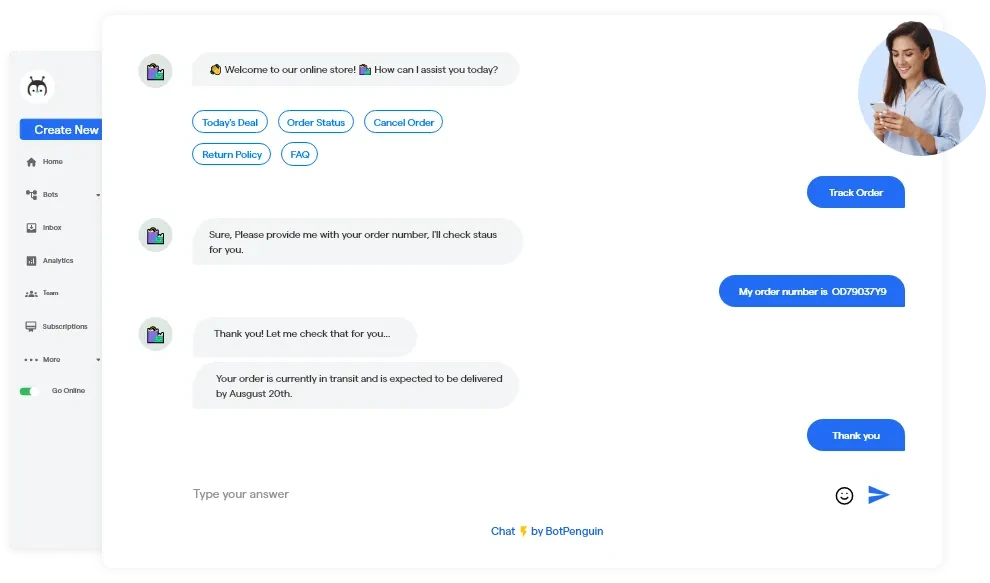
AI-powered chatbots play a vital role in customer service automation. These intelligent virtual assistants can understand and respond to customer queries, providing instant support and engagement. Let's explore the fascinating world of AI-powered chatbots!
Natural Language Processing and Natural Language Understanding
To enable effective customer interactions, AI-powered chatbots utilize Natural Language Processing (NLP) and Natural Language Understanding (NLU) techniques. NLP allows chatbots to comprehend and interpret human language, while NLU helps them understand the context and meaning behind customer queries. This enables chatbots to provide accurate and relevant responses.
Examples of Generative AI Chatbots
Several generative AI chatbot platforms have made their mark in the industry. Dialogflow, powered by Google Cloud, offers NLP capabilities and integrations with various messaging platforms. IBM Watson Assistant provides enterprises with AI-powered chatbot solutions that can understand, learn, and communicate with customers effectively. Amazon Lex, part of Amazon Web Services (AWS), offers easy-to-use tools for building powerful chatbots with voice and text-based interactions.
Now, if you want to begin with chatbots but have no clue about how to use language models to train your chatbot, then check out the NO-CODE chatbot platform, named BotPenguin.
With all the heavy work of chatbot development already done for you, BotPenguin allows users to integrate some of the prominent language models like GPT 4, Google PaLM and Anthropic Claude to create Generative AI-powered chatbots for platforms like:
- WhatsApp Chatbot
- Facebook Chatbot
- WordPress Chatbot
- Telegram Chatbot
- Website Chatbot
- Squarespace Chatbot
- woocommerce Chatbot
- Instagram Chatbot
Application 2: Virtual Assistants for Seamless Customer Experience
Virtual assistants powered by generative AI take customer experiences to a whole new level. These digital companions can perform tasks, answer questions, and even converse with users. Let's delve into the world of virtual assistants!
Voice Recognition and Synthesis Technologies
Virtual assistants rely on advanced voice recognition and synthesis technologies to provide seamless customer interactions. They can understand spoken commands, generate human-like responses, and perform tasks on behalf of the users. These technologies create a more natural and engaging customer experience.
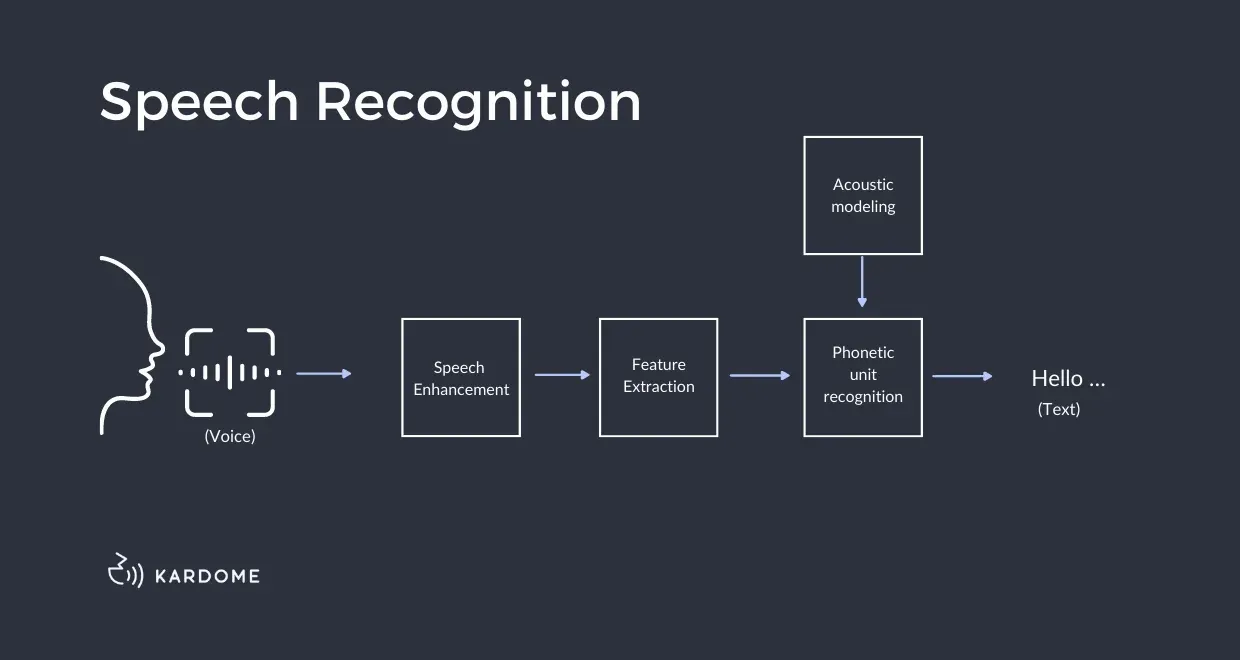
Examples of Virtual Assistants Improving Customer Experiences
Virtual assistants have become ubiquitous, improving customer experiences across various industries. Google Assistant offers personalized assistance and integrates with smart devices, making everyday tasks more convenient.
Siri, Apple's virtual assistant, assists users with tasks on Apple devices and provides proactive suggestions. Alexa, Amazon's voice-activated assistant, offers many skills and can control smart home devices.
Application 3: Personalized Customer Recommendations through Generative AI
Generative AI apps also excel in providing personalized product recommendations to customers. These recommendation engines analyze customer behavior and preferences to offer tailored suggestions. Let's explore the power of generative AI in personalized recommendations!
Enhancing Customer Satisfaction and Conversions with Personalized Recommendations
Personalized recommendations based on generative AI can significantly enhance customer satisfaction and drive conversions. By offering relevant suggestions based on their individual preferences, businesses can create a highly engaging and tailored shopping experience for customers. This leads to increased customer loyalty and higher conversion rates.
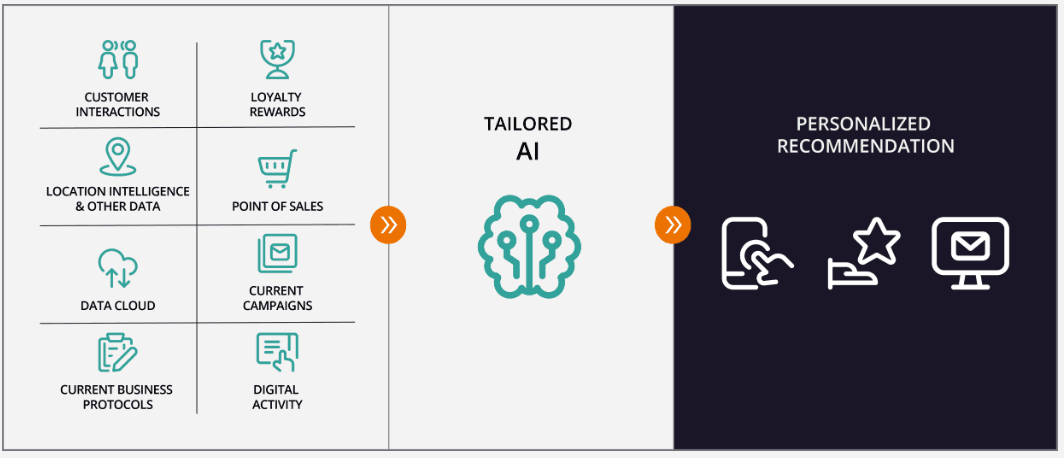
Examples of Generative AI Recommendation Engines
Prominent examples of generative AI recommendation engines include Amazon Personalize, which uses machine learning algorithms to provide personalized recommendations across various industries.
Hugging Face offers state-of-the-art natural language processing models that can understand customers' preferences and provide tailored suggestions. OpenAI's GPT-3, one of the largest language models, can generate highly personalized recommendations and responses based on user input.
Suggested Reading:
Application 4: AI-powered Sentiment Analysis and Customer Feedback
Generative AI plays a crucial role in analyzing customer feedback and understanding sentiment. By utilizing natural language processing techniques, businesses can gain valuable insights into customer opinions. Let's dive into the world of sentiment analysis and generative AI!
Understanding Customer Sentiment through Natural Language Processing
Generative AI enables businesses to understand customer sentiment by analyzing their feedback. Natural Language Processing (NLP) techniques help decipher the sentiment behind customer comments, reviews, and social media posts. This allows companies to gauge customer satisfaction and identify areas for improvement.
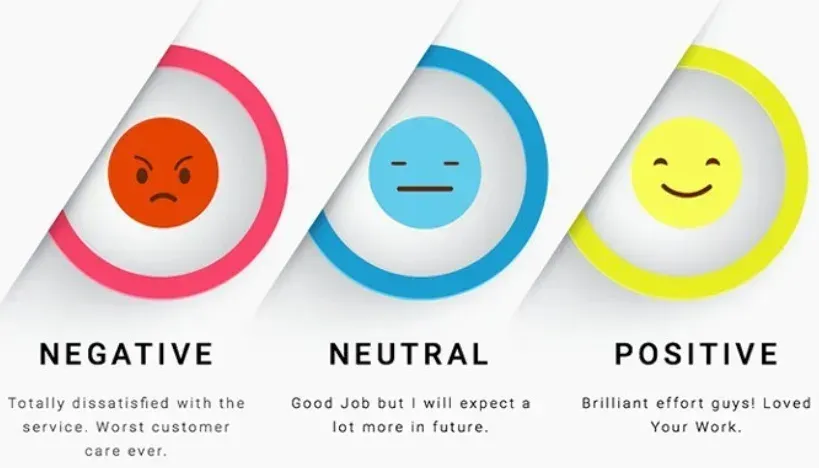
Examples of Generative AI Sentiment Analysis Tools
Generative AI has empowered businesses with powerful sentiment analysis tools. IBM Watson Tone Analyzer allows organizations to understand the emotional tone behind customer text-based interactions.
Clarabridge CX Analytics provides comprehensive sentiment analysis solutions that help businesses in various industries. The Aylien Text Analysis API offers sentiment analysis capabilities tailored to specific business needs.
Application 5: Automated Email Response Systems
AI-enabled email response systems have revolutionized customer service handling. These systems automatically classify and generate responses to customer inquiries, saving time and improving efficiency. Let's explore the wonders of generative AI in automating email-based customer support!
Automatic Email Classification and Response Generation
Generative AI email response systems use machine learning algorithms to classify and categorize incoming emails automatically. Based on predefined rules or learned patterns, these systems generate appropriate responses, reducing the need for manual intervention. This streamlines the customer service process and ensures timely resolutions.
Benefits of Using Generative AI Apps for Automating Email-based Customer Inquiries
Generative AI apps offer numerous benefits for automating email-based customer inquiries. They eliminate the need for customers to wait for human responses, providing instant gratification. These apps also improve response accuracy, consistency, and speed, enhancing customer satisfaction and reduced response times.
Examples of Generative AI Email Response Systems
Generative AI has powered remarkable email response systems that simplify customer service. Hugging Face's Transformers is an open-source library that employs state-of-the-art NLP models to generate accurate email responses.
Google's Smart Reply uses machine learning to suggest possible responses for users, saving time in composing emails. Monkey Learn's Email Classifier efficiently categorizes and routes incoming emails, ensuring each one receives prompt attention.
Suggested Reading:
Application 6: Real-time Language Translation for Multilingual Support
Generative AI facilitates real-time language translation, enabling businesses to provide multilingual support to their customers. Overcoming language barriers is crucial to enhancing customer satisfaction. Let's explore how generative AI revolutionizes language translation in customer service!
Neural Machine Translation Techniques for Seamless Multilingual Support
Generative AI utilizes neural machine translation techniques to facilitate real-time language translation. These algorithms generate high-quality translations, considering the context and nuances of the source language. This ensures a seamless and accurate multilingual support experience for customers, irrespective of their preferred language.
Examples of Generative AI Language Translation Tools
Generative AI has propelled exceptional language translation tools widely used today. Google Translate is a well-established tool that offers translation services in multiple languages. DeepL provides advanced translation capabilities using artificial neural networks. Microsoft Translator is another popular generative AI tool that facilitates real-time application translation.
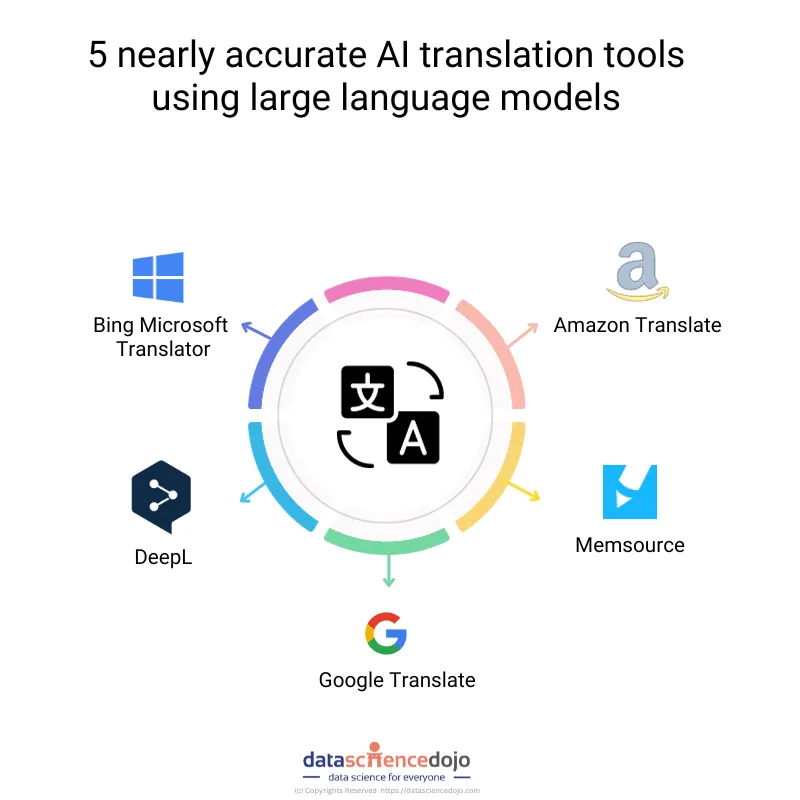
Application 7: AI-powered Predictive Support and Issue Resolution
Generative AI is transforming the way companies provide support and resolve customer issues. By utilizing predictive analytics algorithms, businesses can proactively address customer concerns and enhance their overall experience. Let's explore the world of AI-powered predictive support and issue resolution!
How Generative AI Enables Predictive Support and Issue Resolution?
Generative AI enables predictive support and issue resolution by analyzing customer data and identifying patterns.
Machine learning algorithms can predict potential issues based on historical data and customer behavior, allowing support teams to intervene before problems arise. This proactive approach helps in reducing customer frustration and improving satisfaction levels.
Predictive Analytics Algorithms for Identifying and Resolving Customer Issues
Predictive analytics algorithms are crucial in identifying and resolving customer issues. These algorithms analyze historical customer data, support tickets, and other relevant information. By identifying trends and patterns, businesses can anticipate common problems and proactively address them. This leads to faster issue resolution and improved customer satisfaction.
Examples of Generative AI Predictive Support Tools
Generative AI has powered remarkable predictive support tools that help businesses stay one step ahead. Zendesk's Satisfaction Prediction uses machine learning to predict customer satisfaction based on various factors.
Salesforce's Einstein Case Classification leverages AI to categorize and route customer cases automatically for efficient resolution. Freshworks' Freddy uses predictive analytics to anticipate customer issues and provide proactive support, improving customer experiences.
Suggested Reading:
Application 8: Social Media Monitoring and Engagement
Generative AI apps are revolutionizing social media monitoring and customer engagement. By using AI-powered sentiment analysis and real-time customer engagement, businesses can enhance their brand reputation and customer satisfaction. Let's explore the wonders of generative AI in social media customer service!
Utilizing Generative AI Apps for Social Media Monitoring in Customer Service
Generative AI apps offer powerful solutions for social media monitoring in customer service. They can automatically track mentions of a brand on social media platforms and analyze customer sentiment. This allows businesses to identify potential issues, promptly respond to customer queries, and engage with their audience in real-time.
AI-powered Sentiment Analysis and Real-time Customer Engagement
Generative AI utilizes sentiment analysis techniques to analyze customer sentiment on social media. By understanding customer opinions and emotions, businesses can gauge brand perception and identify areas for improvement. Real-time customer engagement through AI-driven tools enables companies to respond quickly, address concerns, and build positive customer relationships.
Examples of Generative AI Social Media Monitoring Tools
Generative AI has empowered businesses with powerful monitoring tools. NetBase Quid provides comprehensive social media analytics solutions, allowing businesses to understand customer opinions and sentiments. Brandwatch offers AI-powered social listening and analytics, enabling businesses to make data-driven decisions.
Application 9: Automated Self-Service Tools and Knowledge Base Generation
AI-based self-service tools and knowledge base generation are invaluable resources for customer inquiries and issue resolution. Generative AI techniques enable businesses to provide customers with easy access to information, empowering them to find solutions independently. Let's explore the world of AI-driven self-service tools and knowledge base generation!
AI-based Self-Service Tools for Customer Inquiries and Issue Resolution
AI-based self-service tools play a pivotal role in assisting customers with inquiries and issue resolution. Chatbots and virtual assistants equipped with generative AI can understand customer queries and provide relevant, accurate information in real time. These tools offer 24/7 support, reducing customer wait times and improving overall satisfaction.
Generative AI Techniques for Knowledge Base Generation and Maintenance
Generative AI techniques facilitate the creation and maintenance of knowledge bases. By analyzing a vast amount of data, including customer interactions, support tickets, and FAQs, generative AI can generate accurate and up-to-date knowledge base content. This enables customers to access self-service information easily, reducing the need for manual support interactions.
Examples of Generative AI Self-Service Tools
Generative AI has revolutionized self-service tools and knowledge base generation. Ada offers an AI-powered chatbot that can handle customer inquiries and provide intelligent assistance. Talla provides AI-driven automation and knowledge base solutions for effortless issue resolution. Helpshift offers AI-analyzed FAQs and chatbot integration for seamless self-service support.
Conclusion
In summary, generative AI is enabling a new era of intelligent and efficient customer service automation. Solutions like Anthropic's Claude, Synthesia, and Cognigy provide sophisticated conversational abilities that can seamlessly handle customer queries at scale.
Key business benefits include 24/7 availability, reduced costs, shorter resolution times, higher CSAT scores, and the ability to offer personalized and context-aware support in multiple languages. According to a survey by Deloitte, over 50% of CX leaders believe AI-powered chatbots increase customer satisfaction.
As generative AI like ChatGPT continues to mature, virtual assistants are becoming increasingly human-like. Adopting the latest innovations in generative customer service automation will be crucial for boosting efficiencies and gaining a competitive advantage.
Suggested Reading:
Frequently Asked Questions (FAQs)
What are some top generative AI apps for customer service automation and how do they benefit businesses?
Discover the best generative AI apps for customer service automation that automate responses, handle queries, and provide personalized support. These apps enhance customer experiences, increase efficiency, and improve customer satisfaction.
How do generative AI apps like chatbots improve customer service in businesses?
Generative AI apps like chatbots automate customer interactions, provide instant responses, and assist in lead generation. With 24/7 support, businesses can enhance customer service, save time, and reduce response times.
Can generative AI apps for customer service handle complex customer queries effectively?
Yes, generative AI apps for customer service are designed to handle complex queries. They use advanced natural language processing algorithms to understand and provide accurate responses, improving customer satisfaction and reducing workload.
What are some key features to look for when choosing generative AI apps for customer service automation?
When selecting generative AI apps for customer service automation, consider features like seamless integration with existing platforms, customization options, multichannel support, data security, and scalability for business growth.
How do generative AI apps improve productivity in customer service departments?
Generative AI apps automate repetitive tasks, reduce manual effort, and provide instant responses. By freeing up time and resources, customer service teams can focus on higher-value tasks, leading to increased productivity and efficiency.


